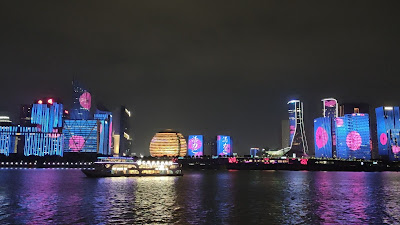Dragon Boat Festival: the origin
Everyone loves the Dragon Boat festival, let’s discover why it is celebrated.
Dragon Boat Festival, in Chinese 端午节, is one of the most famous holidays in China, its earliest record dates to the period of Seven Warring States (475-221 BC), that means that it has been celebrated for over 2000 years, becoming, only in 2019, the first Chinese festival to receive the honour of being part of UNESCO Cultural Heritage List.
It is time to travel in the past, to go far away, in a time when the idea of china itself had still to materialise and discover the origin of this iconic festival.
You cannot think of Chinese culture without picturing a dragon in your head, you can truly find them all over China, also known as “Country of the Dragon”. You are probably asking yourself why they glorify a creature that can spit out fire and constantly takes princesses as prisoners. The answer is that the diversity between the western view of dragons and the eastern one is important, both in their aspect and symbolism. Regarding the physical characteristic, many parts of the body are full of significance. as the forehead, that represents the wisdom, the fish tail symbolise the flexibility and its eagle’s claws signify bravery. The Chinese dragon is the source of all the good things, it is the master of stars, rainbow, thunders and rain, it brings joy and miracles.
From ancient time, the fifth lunar moth this creature has been considered as unfortunate month because, being hot, insects and bacteria breed fast and people could easily catch infections. The fifth day of the fifth month was weighed as the most cursed day of the year, from here the name of “double five festival”. During that day people made sacrifices on top of mountains or along riverbanks and rowed dragon boats, hoping that the real dragon would appear to save them.
There are many legends and stories about the origin of this folk festival, the most popular is the story of the famous poet Qu Yuan.
The story of Qu Yuan starts during the period of the seven warring states (475-221 BC). He was a talented officer and poet from the state of Chu. He had many ideas to make his state stronger and put some of them into practice. He wanted to unify some states against the state of Qin, that was the strongest one, and he didn’t agree with the strategy adopted from his superior. Accused of betrayal, he was forced to the exile and live far away from his beloved state. Enforced to stay far away from home, he started travelling around China and became a great poet, writing one of the most beautiful poems of ancient Chinese literature. Few years later the state of Chu has been conquered by Qin. From that moment the situation became worse day by day, until, in 278 BC, the state of Qin conclusively conquered the enemy, arriving to the capital of Chu. Qu Yuan, that was devoted to his state, felt that bad that he did something extreme. In view of the fact he decided to kill himself, sinking in the汨罗 (Mìluo’) river, exactly the fifth day of the fifth lunar month. People around got on their boats, started playing trumpets, moving paddles of the boats and throwing粽子 (zongzi) in the water, trying to save his body from animals and evil spirits that lived in the river.
Here an extract of his most famous poems
離騷
Lí Sāo
The Sorrow of Parting
朝發軔於蒼梧兮,
Zhāo fā rèn yú cāngwú xī,
Taking off the brake, departing from Cangwu at dawn,
夕餘至乎縣圃;
xī yú zhì hū xuán pǔ;
and before night falls, arriving at the Hanging Gardens;
欲少留此靈瑣兮,
yù shǎo liú cǐ líng sǒu xī,
I wish to stay at this gathering place of the spirits,
日忽忽其將暮;
rì hūhū qí jiāng mù;
yet the sun is about to set;
吾令羲和弭節兮,
wú lìng Xīhé mǐ jié xī,
I order Xihe to slow to a trot;
望崦嵫而匆迫;
wàng yān zī ér cōng pò;
gazing at Mt Yan and Mt Zi, yet not anxious to approach them;
路漫漫其脩遠兮,
lù mànmàn qí xiū yuǎn xī,
the road is boundless - cultivation so distant;
吾將上下而求索。
wú jiāng shàngxià ér qiúsuǒ.
I shall explore it from beginning to end.

Comments
Post a Comment